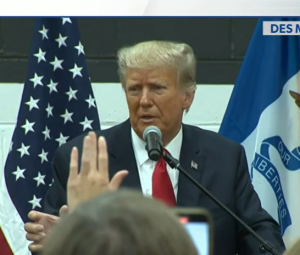According to a memo issued by the Department of Interior, the Biden administration has suspended the gas and oil permit and lease on federal properties on a temporary basis as it reevaluates the policy and legal impacts of the initiative, reported Reuters.
The step appears to be the primary step in fulfiling the promises made by the administration during the Presidential campaign to put an end to all newly instated federal drilling permits which hold a potential threat to the environment.
The oil and gas firms do not seem to be happy with the decision as they had stockpiled permits while expecting an alteration in the federal policy.
Also Read: ‘WHO is complete again’: Sigh of relief as US reengages with UN agency
Around a quarter of the country’s crude oil is extracted from the US federal territories which also makes the source one of the leading causes of America’s emissions, reported Reuters.
Former US President Donald Trump, who often underestimated the concerns of climate change and global warming, took measures to maximize the output of fossil energy from the US.
Scott de la Vega, the acting Interior secretary for the new administration, temporarily suspended the authority of agency offices for issuing authorisations for ground-disturbing activities, revised land management plans among others.
During the pause, activities may be approved by certain agency officials in Washington, the memo said.
According to the memo, the right to issuing such authorisations have been retained to selected agencies in Washington, reported Reuters.
Also Read: President Joe Biden announces new strategy for COVID-19 response of the US
Organisations like American Petroleum Institute, Oil and gas industry trade groups and the Western Energy Alliance did not take long to condemn the suspension.
Mike Sommers, the American Petroleum Institute President said, “With this move, the administration is leading us toward more reliance on foreign energy from countries with lower environmental standards and risks to hundreds of thousands of jobs and billions in government revenue for education and conservation programs.”







